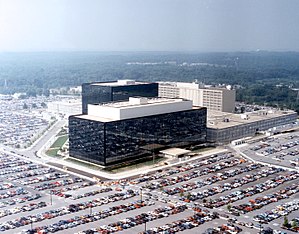This blog post is based on a section of my upcoming book “The Devil for Dummies”.
Once upon a time, a long long time ago, when your ancient ancestors roamed the earth, a thing called the World Wide Web was created. It was “stateless” – one page had no narrative connection with another other than by hyperlinks. But writers didn’t understand how to write in this medium. Writers understood only “the narrative” as it had existed for thousands of years. After much gnashing of teeth, complaining, soiled diapers, and ultimately the lobbying efforts of the Devil himself, cookies were added to the otherwise simple design of the web browser.
The cookies were added to provide a mechanism for maintaining “state”: not a lot, but just enough, in the estimation of the designers, to allow for maintenance of a narrative relationship between web pages. The Devil sniggered, and drooled sulfurous snot, cranking up the heat on the advertising industry (one of his minions). Other minions, armed with pitchforks glowing orange-hot, were dispatched to major media concerns and other massive content providers.
In a mild effort to protect the security of these cookies, the designers had humbly decided that only the domain that set the cookie could read the cookie. This would, they believed in their naive minds, prevent cookie snooping. The Devil fairly glowed as he observed this, and could barely contain his delight and glee. The designers had forgotten that each user has a (mostly) unique IP address (mostly unique enough for the Devil’s purposes), and that advertising is usually provided across many sites by the same third parties (the Devil’s minions).
The Devil got busy. You see, disk space had become very cheap, so extensive record keeping became trivial. Cookie information could be combined with two other pieces of information: the URL of the referring page, and your IP address. This information was obtained every time an advertisement was displayed on your page. This allowed advertisers to track a user’s every move. Soon, the Devil’s info-base of who did what to whom when would surpass Santa Claus’s, and approach God’s omniscience (with nothing forgiven)!
The Devil wasn’t done yet, as I discovered today when I performed a fairly routine task of posting a comment to an online item. It could have been a blog, or a news article. I couldn’t post it without setting up an account. Perhaps an easy way to hold comment posters responsible for non-abusive behavior. Perhaps a way to track who has comments about what. For example, you might be someone who criticizes the government, and thus a terrorist. All tracked by cookies, IP addresses, profiles, the NSA, etc. Anything on the Internet could be a matter of national security, you see.
Everyone needs backup. Even the Devil. So, it was arranged that the National Security Agency (NSA) would undertake a program called “Total Information Awareness” (that it would later deny implementing despite evidence to the contrary). This program simply recorded everything on the Internet, as well as all telephone calls, so that nothing was missed. The Devil, politicians, and other similarly motivated parties could mine the information at a later time to get the goods on someone whenever it was convenient… even years or decades after the fact. Many government workers got bonuses from the Devil for that one. Of course, access to the NSA’s data warehouse was to be strictly controlled, but even the most innocent know how bad the government is at keeping secrets.
When you start to collect enough information about an individual, a profile is essentially created. This profile, as information is added, starts to exhibit properties that can be used to match it with other information or profiles collected in other data streams. Like smaller bubbles merging into ever larger ones, profiles in cyberspace merge until large amounts of personal information are aggregated and pinned to an individual. Perhaps one such profile didn’t originally contain your name, but the profile became a confirmed match with another one that DID contain your name, perhaps because there was an IP address or cookie in common. Or phone number. Or social “security” [sic] number. Or mother’s maiden name (in the security hint). Or pets name and zip code. And so on, so much so, that privacy vanished completely in a puff of sulfurous smoke.
Blame it on the Devil. The Devil did it.
… more than likely, though, it wasn’t the Devil. No, it was the rest of us not standing up for our rights. We were too busy being entertained. You snooze, you lose. And then… well… it’s hard to get it back. Facts on the ground as some have said. Still the Devil smiles as we’re ALL his minions. Muhahahaa!





